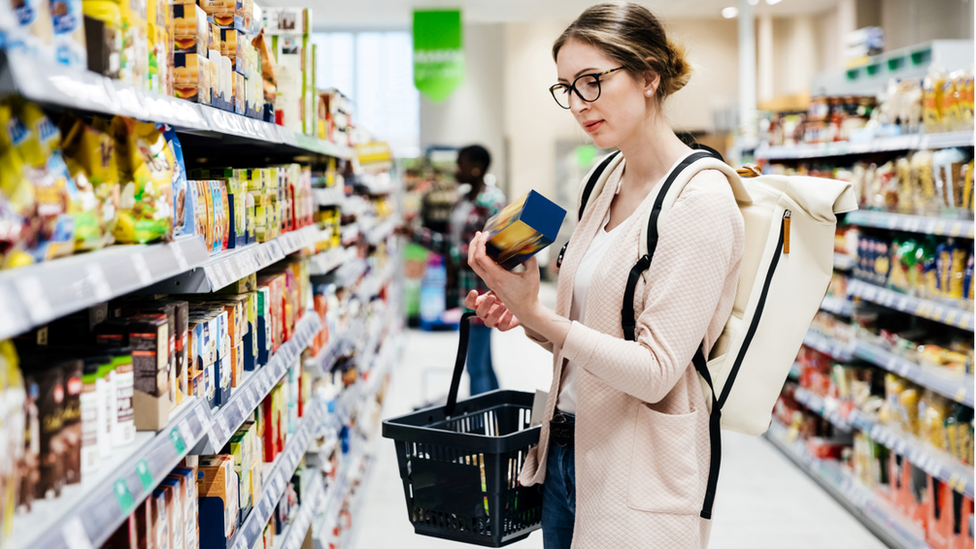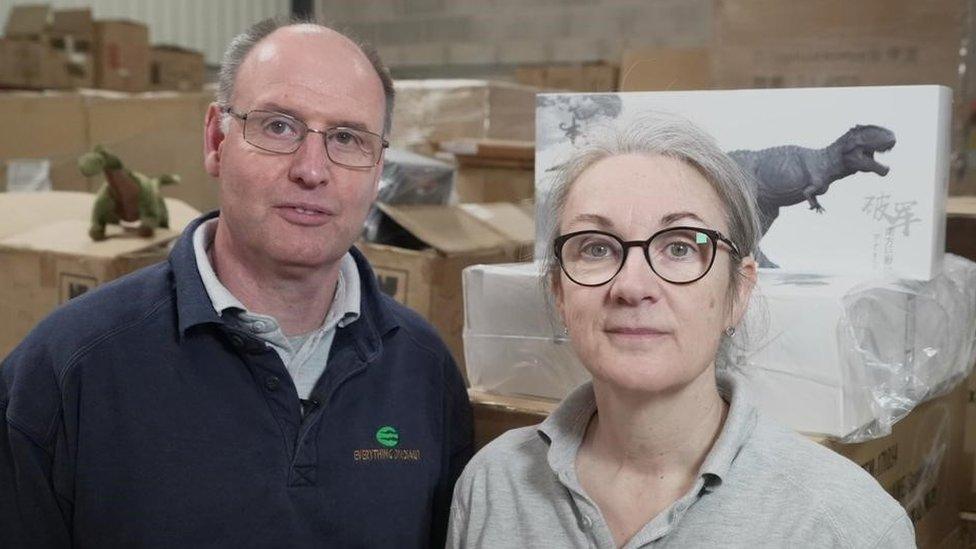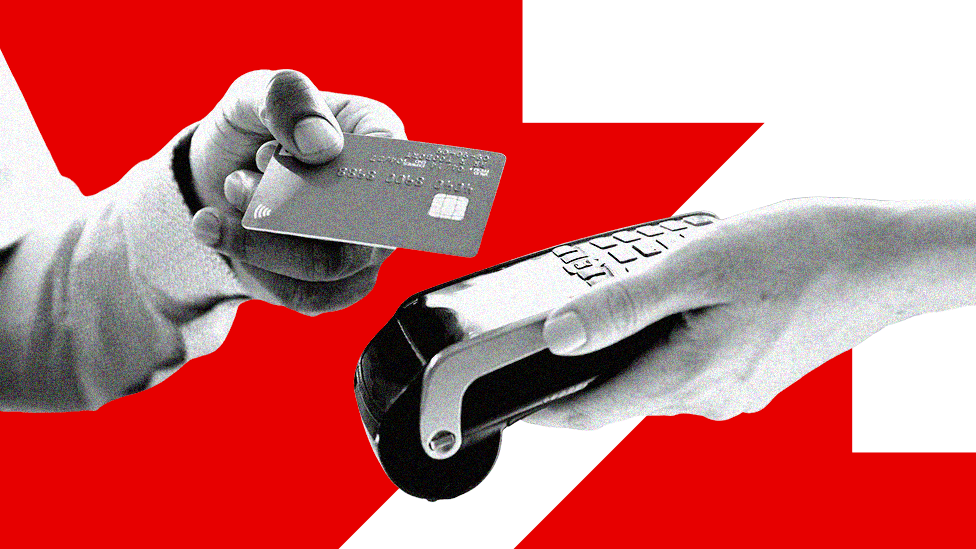Recession fears grow as rising prices hit spending
- Published
- comments

The risk of a recession has risen, analysts have warned, after the economy shrank during March just as the UK had recovered from the pandemic.
Higher prices are "beginning to bite", the UK statistics body said, external, with people spending less and cutting down on car journeys due to high fuel costs.
The impact of higher energy bills in April has also yet to be seen.
The economy grew by 0.8% over the first three months of the year, but in March it shrank by 0.1% as people cut back.
The main boost to the economy came in January, as hospitality and travel industries recovered from coronavirus pandemic restrictions.
However, that came before the war in Ukraine and before households began to feel the pinch of higher prices.
Paul Dales, chief UK economist at Capital Economics, said the latest figures "suggest the economy had less momentum than we thought even before the full hit from the cost of living crisis has been felt".
He added that the risk of recession - defined as the economy getting smaller for two consecutive three-month periods - "has just risen".
On Wednesday, the National Institute of Economic and Social Research think tank warned that the squeeze on household incomes would cause the UK to fall into recession in the final half of 2022
Last week, the Bank of England forecast that inflation - the rate at which prices rise - could reach more than 10% by the end of the year.
The Bank said has warned the UK faces a "sharp economic slowdown", with prices rising at their fastest rate for 30 years, driven by soaring fuel, food and energy costs.
Darren Morgan, director of economic statistics at the ONS, told the BBC that people had already started spending less with shop sales "well below expectations" in March, and people cutting back on "big ticket, non-essential items".
"You can see the cost of living really beginning to bite," he added.
The services sector, which makes up the largest part of the UK economy and is made up of jobs across hospitality, finance and real estate, was the main contributor to the economy contracting in March, the ONS said.
The worst performer in the sector was the motor industry which Mr Morgan said was "very much struggling" as sales fell.
Car trade body, the Society of Motor Manufacturers and Traders has said March marked the "weakest" for new car registrations since 1998, as supply chain problems continued to hamper carmakers.
The UK's FTSE 100 share index fell 2% following the release of the weaker than expected growth figures.


We'll take any growth we can get right now, and on the face of it 0.8% growth in the economy during the first three months of the year is good by any normal standard and better than most of the comparable G7 major economies, some of which are already contracting. It confirms full recovery from the economic losses of the pandemic, though at a slower pace compared to the rest of those G7 countries.
But this looks like being old news already, before the cost of living crisis exacerbated by events in Ukraine, tripped up growth. The evidence of the impact of a squeezed economy hit by high prices is already visible in the first quarter's monthly breakdowns. All the growth happened in January, with a flat February and a small contraction in March.
Economists fear the economy could be contracting right now, though some of that may be down to an extra bank holiday. With taxes, interest rates, and inflation all hitting disposable income at the same time, the fear is that January could be as good as it gets for the UK economy in 2022.

Mr Morgan said a survey by the ONS of 40,000 businesses found over half had seen an increase in the price of wholesale materials and goods, but fewer than half of those firms were passing the costs on.
"They are absorbing those rises and you do have to question how sustainable that is on an ongoing basis," he said.
Many businesses expect the price of goods to increase further, and "their big concern is energy prices," Mr Morgan added.

Mike Whalley and Sue Judd say small businesses are facing multiple challenges
Mike Whalley and Sue Judd, who own specialist model and toy shop Everything Dinosaur, said their running costs had increased "astronomically".
"It's taking twice as long to get goods as it used to and it's costing twice as much to actually get them here," Miss Judd told the BBC.
The pair, from Middlewich in Cheshire, have been forced to pass on some of the higher costs on to customers through higher product prices.
Mr Whalley said it was also more expensive and more time-consuming to export to Europe now following Brexit.
"We're being attacked from all sides. It's a challenging environment," he added.
Emergency Budget calls
Chancellor Rishi Sunak told the BBC he was "ready to do more", but did not commit to further action on tackling the rising cost of living.
The chancellor would not say whether a recession was likely in the coming months, but did admit that the "global economy is facing inflationary pressures", as a result of the war in Ukraine.
Mr Sunak has threatened to hit energy companies with a one-off "windfall" tax if they do not invest enough in new projects.
Suren Thiru, head of economics at the British Chambers of Commerce (BCC), said the slowdown in the economy was "alarming".
It called for an emergency Budget to give firms "the breathing space they need to raise productivity and strengthen the economy, including reversing the recently introduced National Insurance increase until at least the next financial year".
The CBI business group said businesses and households were "feeling the pinch".
"The economy barely kept its head above the water during a volatile start to the year, but times look set to get that bit tougher," said Rain Newton-Smith, CBI chief economist.
Related topics
- Published5 May 2022


